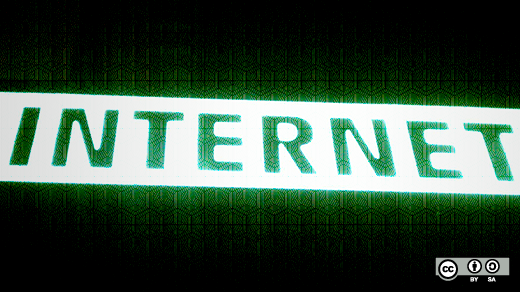Owen DeLong is a Senior Manager of Network Architecture at Akamai Technologies, a leader in content delivery network (CDN) services that help to make the Internet "fast, reliable, and secure." He will be speaking at SCaLE 14x about IPv6 adoption (because we're out of IPv4!). Owen is also a member of the ARIN Advisory Council—an advisory group to the Board of Trustees on Internet number resource policy and related matters—and is an active member of the systems administration, operations, and Internet Protocol policy communities.
Learn more about him and his work in this interview.

Can you tell a bit about your role and responsibilities?
Basically, I work with our network partners and our internal organizations to ensure that we are designing and deploying a network capable of delivering what our customers need and want with the highest performance at the lowest cost possible.
Are we really out of IPv4 addresses? When should we start migrating to IPv6?
Yes and no. I’ll come back to that, but for most practical purposes, yes.
To the second question, you should have started about 20 years ago, but if you haven't started, then today is definitely not too soon and tomorrow is probably too late.
We are, in four out of five Regional Internet Registry (RIR) regions out of IPv4 addresses to issue according to traditional needs assessment. Each of those four RIRs have some reserve for things like critical infrastructure (Internet exchange points, critical name servers, etc.) and in some cases minimal allocations to new entrants who have not received previous allocations or organizations needing IPv4 space to facilitate IPv6 transition.
In the fifth region (AfriNIC), there is still some IPv4 space available for issuance under normal policies, but I do not think this will last as long as some predictions have said it will. I believe that consumption in Africa is already accelerating rapidly.
What about co-existence? Will IPv4 continue to co-exist with IPv6? Or future deployments will be IPv6 only?
I know you phrased the question as if those are mutually exclusive, but the correct answer is yes to both.
Here’s the thing… Existing deployments with IPv4 will continue to function with IPv4 for some time. They can (and should) add IPv6 along side their IPv4 addressing and support both protocols.
For as long as possible new deployments will likely have some ability to connect to IPv4 deployments as well, but depending on this is not a good plan. Any mechanism for doing so depends on a continuing supply of IPv4 addresses for those new deployments to use at least for translation purposes. We are doing higher and higher density address sharing in IPv4 in order to facilitate this. You’ll hear all kinds of nice euphemisms for these technologies such as "carrier-grade NAT" (network address translation). The problem is that there’s absolutely nothing "carrier-grade" about any form of NAT. When you look at it from a pure networking perspective, NAT is pretty awful. It’s kind of like DDT… Sure, it kills the bugs, but it has some pretty nasty side effects.
In this case, sure, NAT allows multiple people to use the same IPv4 address, but here's what's bad about it:
1. It turns everyone behind the NAT into a second-class consume-only network citizen.
2. It causes all kinds of collateral damage when one user in the group of users behind a given address starts doing bad things.
3. It's expensive to maintain.
4. It makes identifying abusers much harder.
5. It’s almost impossible to stop an abuser you can't identify.
6. It takes vast amounts of resources to maintain.
7. It does not scale well.
8. It is fragile and breaks applications.
If someone wants to learn about IPv6 what is the best place to start?
One of the best places to go is the free online tutorial at Hurricane Electric’s IPv6 Tunnel Broker.
You have worked at Sun, Netcom, Exodus, Tellme, Hurricane and you are now at Akamai. Which has been your most satisfying work till now? What was your contribution?
I’ve had some really wonderful experiences at each and every one of those organizations. I think my most satisfying work to date, and work that I am still pursuing, has been my work on the ARIN Advisory Council. It's an elected volunteer position where I work with 14 other people to manage the number resource policy process within the ARIN region. It has allowed me to meet some amazing people in the ARIN community and in other RIR communities as well. It’s given me an amazing view of just how powerful the Internet is when it comes to reshaping the everyday lives of the people we share this little blue ball with.
You have diverse interests like scuba diving, aviation, the ham radio, rocketry, and bridge. How do you balance your work with your personal interests? How do you maintain work-life balance?
I don’t. I’m always wishing I had more time for my hobbies except when I’m unemployed and wishing I had more money for my hobbies. Really, what I need is for someone to toss $15 million in my lap so I can go do the things I want to do and try to make the world better in the process. Until then (yeah, I'm what you call a pessimistic optimist), I try to find work that allows me to contribute to my greater goals as part of that work, and I engage in my hobbies as time permits around that. So far, I've been really fortunate in this regard, especially in my time at Hurricane and now at Akamai.






3 Comments